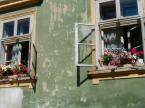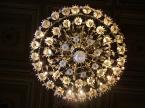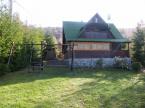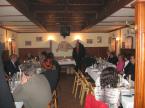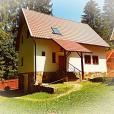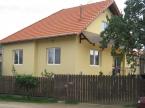Information
- Săcele is also a village in Constanţa, Romania.
The city has 15 churches of the following denominations: Orthodox, Evangelical, Roman Catholic.
The city is now based on former villages wich now form the main sectors: Baciu (Bacsfalu), Turcheş (Türkös), Cernatu (Csernátfalu) and Satulung.
After the second half of the XI-th century, while under Hungarian occupation, the villages are mentioned as "septem villae valacheles"
The first official mention is an act issued on May 16th 1366 by the Hungarian King Ludovic I de Anjou in which he offers the area between Timiş and Tarlung to a trusted friend - Count Stanislav.
The name Săcele is first mentioned in a letter between the Vallachian King Vlad Calugaru (1482-1495) and the magistrate of Braşov.
The oldest local inhabitants were the "mocans" - local sheperds. They are mentioned in numerous official documents and appear to have had a flourishing material existence and rich cultural and spiritual life. They owned thousands of sheep, the vilages being among the richest in the area. They carried the local traditions across many Romanian lands due to the transhumance method of sheperding. This explains the existance of a village near the Black Sea called Săcele, founded by the travelling mocans.
Their customs exists to these days: the "Sintilie" festival ,national costumes, architecture etc.
Between the XIIIth and XIVth centuries, an important Hungarian population has established in the region and marked the further development of the area.
Both Romanians and Hungarians co-habit happily and are an example of inter-ethnic relations in Transylvania.
After the fall of Comunism in Romania in 1990, the city has diversified its economy. In Sacele there are nowadays several small furniture factories, lumber-mills, as well as meat-packaging facilities.
<br clear="all">
SaceleSacele

 English
English



